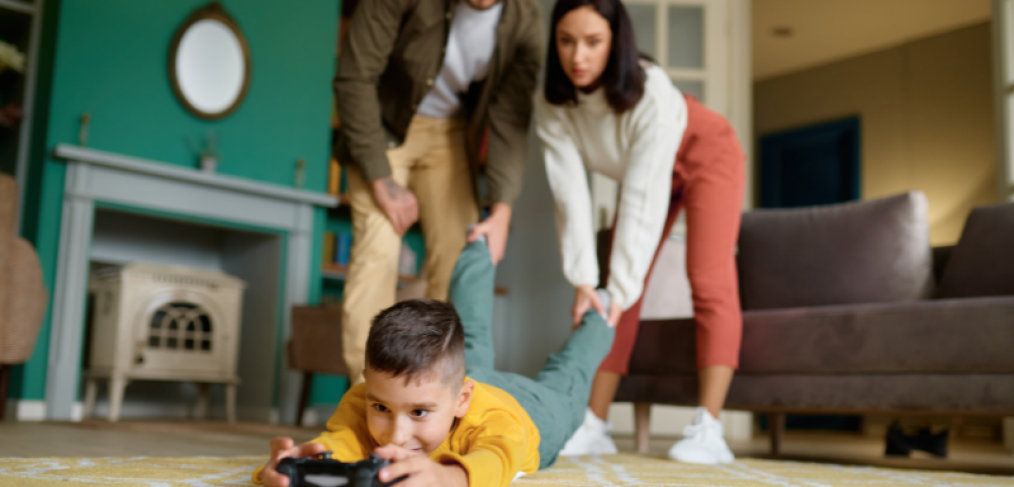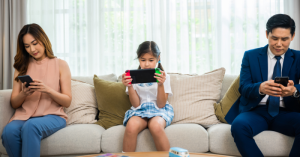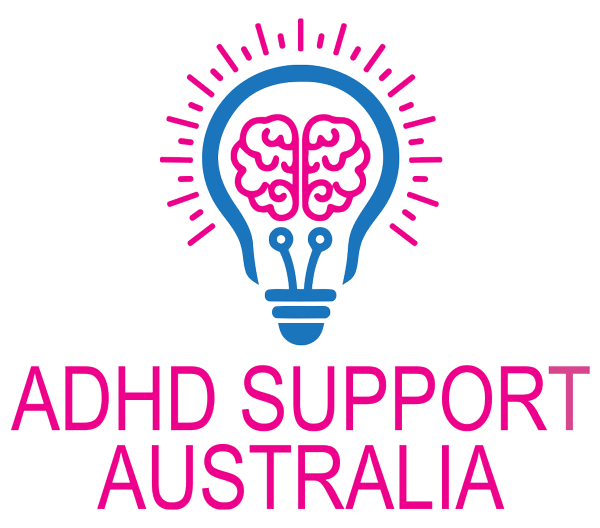
Online Gaming – Friend or Foe?
Understanding Your Young Person’s Obsession with Gaming
Does your young person retreat online to escape, spending hours staring at a screen playing games that seem to have no end? Do you have difficulty getting them to disengage from the screen, encountering major meltdowns and unwarranted aggression when you try and take the screen away?
It’s okay to feel frustrated as a parent facing the challenge of raising young people in a new age of technology. Remember, you’re the first generation of parents coping with the impact of technology on young people. To work through this, you need to understand why your young person is so drawn to the screen, and what it’s doing to their body.
In all the programs run by ADHD Support Australia, overuse of technology and screen addiction is the number one issue parents tell us that they face. The instant gratification, endless supply of new, interactive features and the promise of increased social connections are irresistible to young people – whose brains are wired to seek novel experiences and rewards.
We’re designed to share experiences through stories and myths as we form relationships and navigate our way through life. The gaming industry has honed in on this desire, designing a world based around the hero’s journey that creates the perfect medium for your child to step into the role of their perceived hero. Virtually guiding them through their hero’s journey, they are able to experience the character’s emotional journey and feel their sense of achievement as their own. For a young person with ADHD who may be struggling to connect socially in their everyday life, you can see why they might retreat online rather than face the struggles of the real world. There’s no natural end to online gaming, endless rewards and a faceless community compel your young person to stay online.
While at first this might sound benign, what happens when you ask your young person to take a break from the screen, engage in a real-world conversation or take a walk outside? Many parents say that these simple requests are often met with an emotional meltdown or aggressive behaviour. Why is it such a big deal to them?
 Sustained periods of extremely high levels of dopamine have a physiological effect. Online games provide hours of unpredictable rewards, triggering dopamine release that your brain can’t resist. A gamer playing for hours and hours will experience these physiological effects for an extended period of time, making them harder to lower and resulting in dysregulation. A dysregulated brain will result in a tired and agitated young person that still can’t seem to get to sleep. Alongside this, excessive online engagement also inhibits executive function, something young people with ADHD already struggle with. This impacts their impulse control, their consequential thinking, and their ability to effectively plan and organise themselves.
Sustained periods of extremely high levels of dopamine have a physiological effect. Online games provide hours of unpredictable rewards, triggering dopamine release that your brain can’t resist. A gamer playing for hours and hours will experience these physiological effects for an extended period of time, making them harder to lower and resulting in dysregulation. A dysregulated brain will result in a tired and agitated young person that still can’t seem to get to sleep. Alongside this, excessive online engagement also inhibits executive function, something young people with ADHD already struggle with. This impacts their impulse control, their consequential thinking, and their ability to effectively plan and organise themselves.
A neurological study of gaming’s impact on young males performed MRI scans on 22 males who were not traditionally gamers, and had them play violent games for 10 hours a week. After just two weeks they showed less activation in frontal lobe regions of their brains – key areas for controlling emotion and aggressive behaviour. This is the same brain region affected by drug addiction, reminding us that these platforms are designed to be addictive. Young people with ADHD are particularly at risk, as they have higher novelty seeking tendencies making them more susceptible to addiction. So how are you supposed to tear them away from the screen?
Ultimately, we all want to be raising an emotionally regulated, balanced, resilient, and engaged young person. You already understand how difficult of a task this is, and it will require compassion to guide your young person forwards.
It’s important to talk to them, understand what it is that’s troubling them in real life, and how you can help. You may need to seek professional psychological support, or they may benefit from programs designed to improve their social skills, such as the PEERS program. Ask them what they love so much about their online life. Get curious in order to support them, and develop an understanding of why it’s so upsetting to them when they have to stop. Think of a real life activity that might be equally as engaging to them. After all, it would be better to play Dungeons & Dragons with real people they can connect with, than in a faceless digital world.
Reflect on your own digital habits – are you spending more time looking at your phone than talking to your young person? We’re all drawn to our devices, they are designed by psychological means to keep us looking at them, so we need to be mindful of both where our attention is focussed and the behaviour we are modelling.
We’re all drawn to our devices, they are designed by psychological means to keep us looking at them, so we need to be mindful of both where our attention is focussed and the behaviour we are modelling.
Factoring in all these concerns, it’s important to make a plan for how you can best tackle the problem and have a clear goal in mind for what a healthy digital balance looks like for your family.
If this feels overwhelming to you, then don’t face it alone. ADHD Support Australia runs a 12 week online Digital Parenting course to support parents like yourself through the challenge of raising young people in a new age of technology.
The program is centred on forming healthy relationships with digital media, encouraging young people to be more connected socially, and more engaged in the real-world opportunities they could be otherwise missing out on. Through the course, you’ll develop an in-depth understanding of the effects of screen use and create an informed step-by-step plan for your family, prioritising the future of your young person.
Register today to take your first step towards a digitally balanced future and a happier, healthier young person.
The author, Vivian Dunstan, is Founder & CEO of ADHD Support Australia ADDCA trained ADHD Coach, Parent Coach & Facilitator of Parenting Children with ADHD – a 6-week online course, Certified Tech Addiction & Digital Health Educator (NIDHW) and Facilitator of the 6-week online Digital Parenting Program, Certified PEERS Social Skills for Teens & Young Adults coach and program facilitator, Certified NeuroACT provider & course facilitator, non-practicing teacher, parent of a young adult with ADHD and has ADHD herself.
